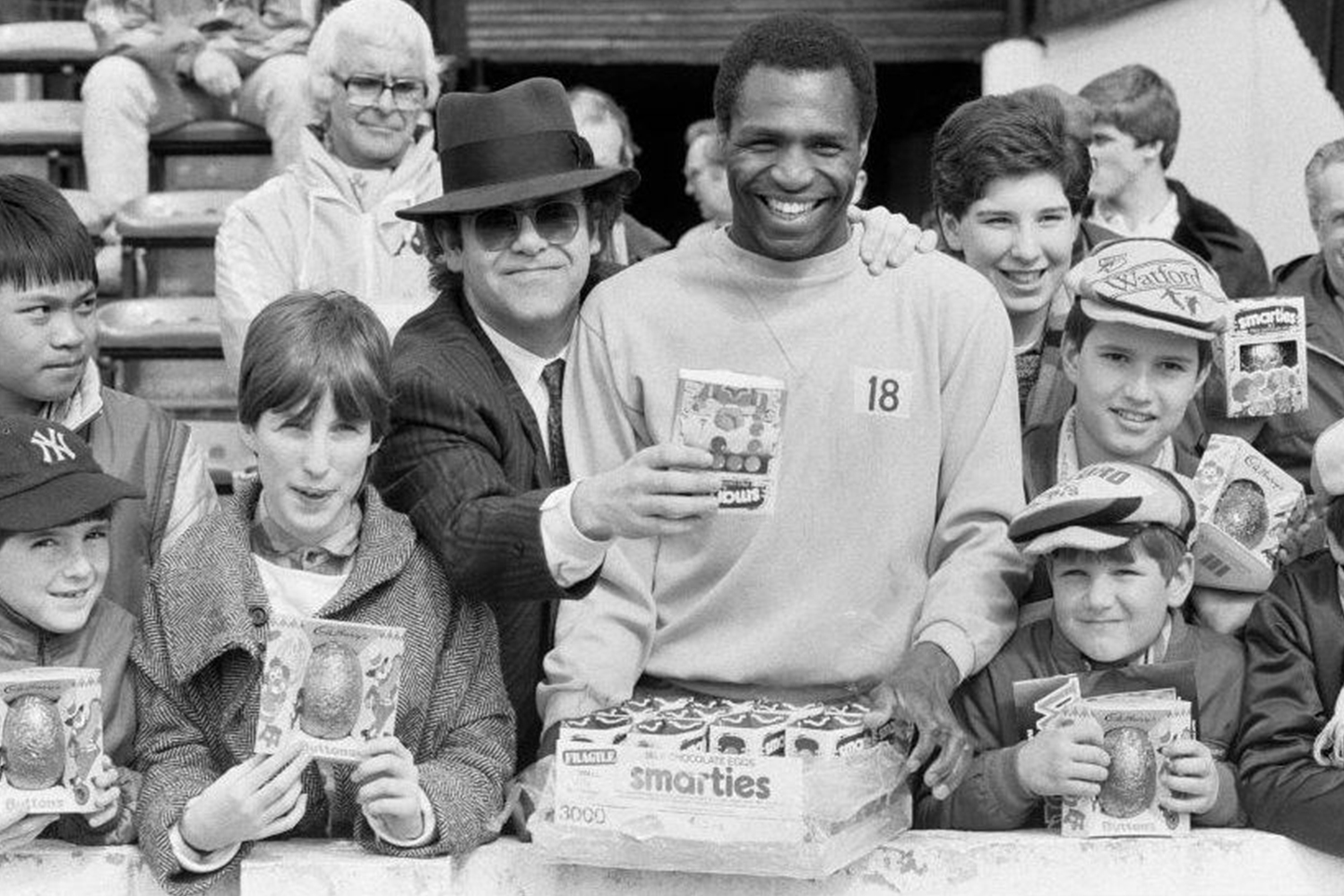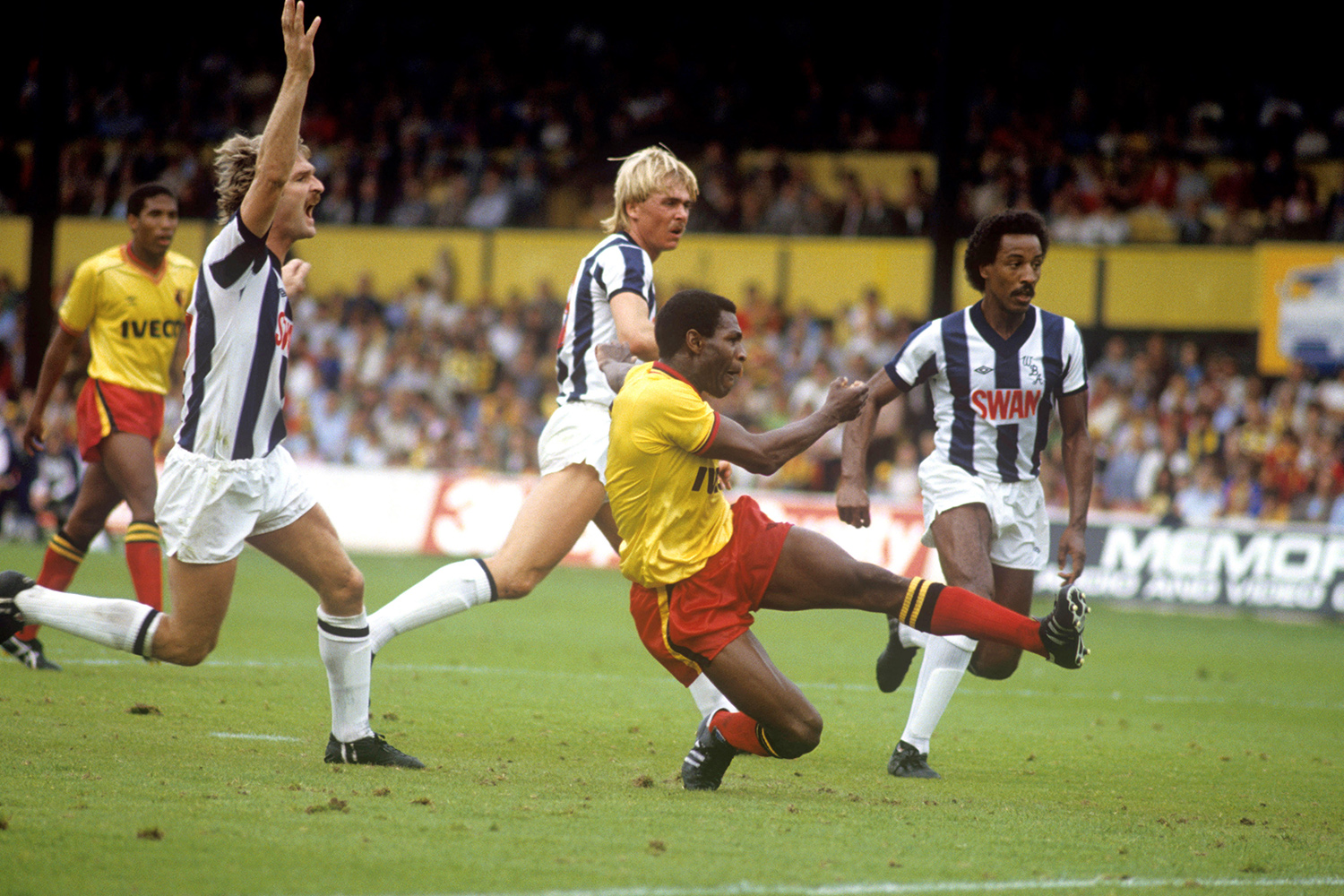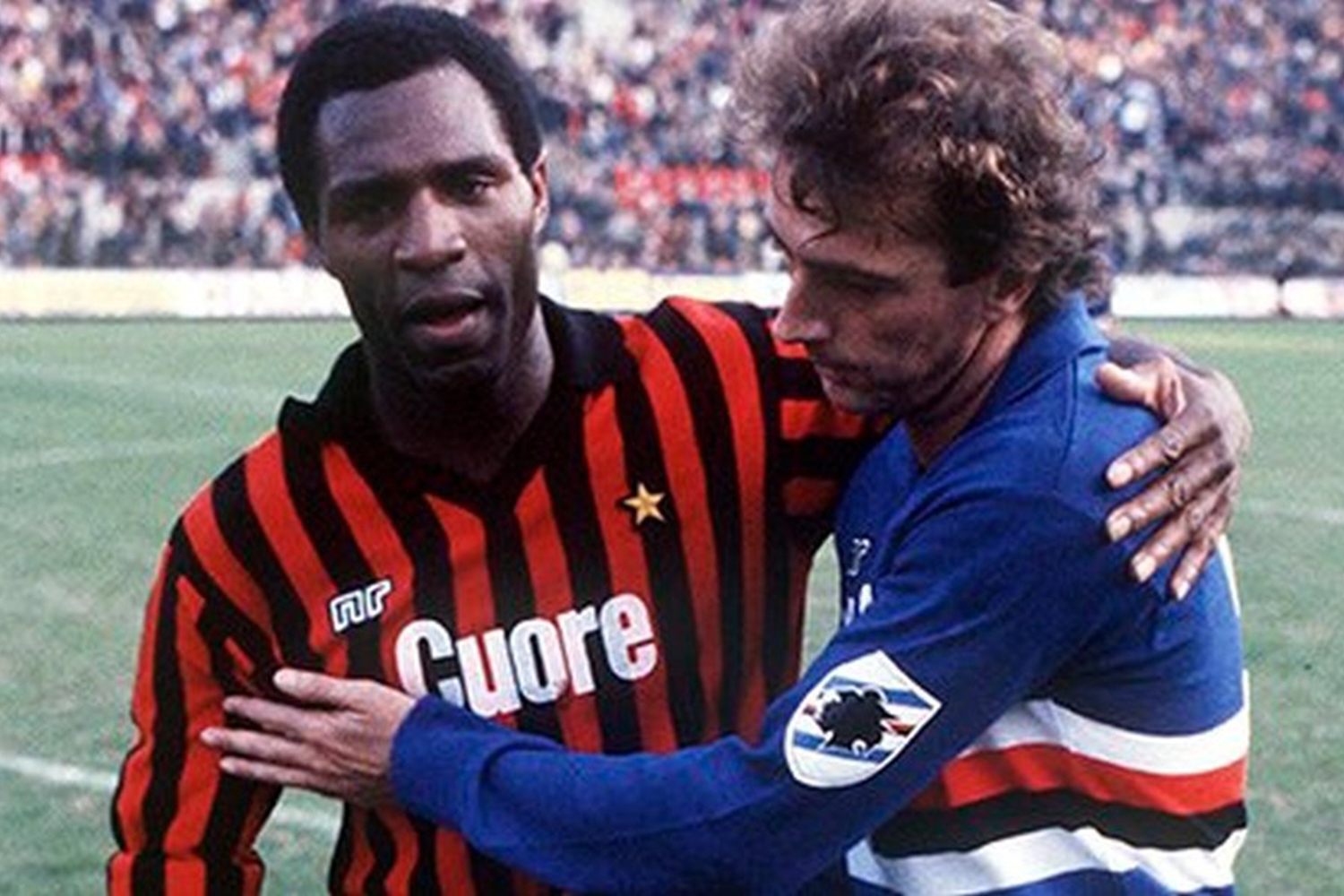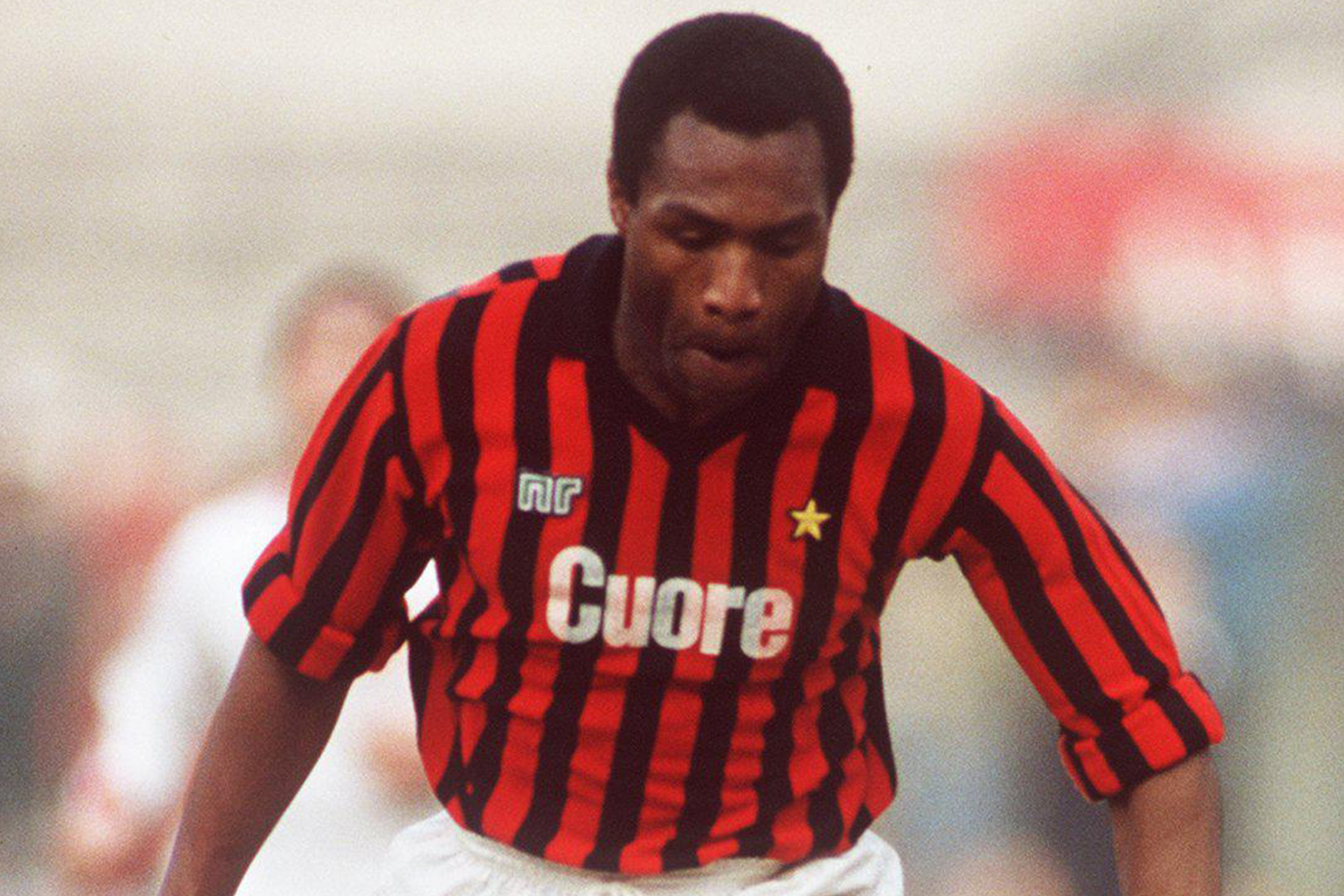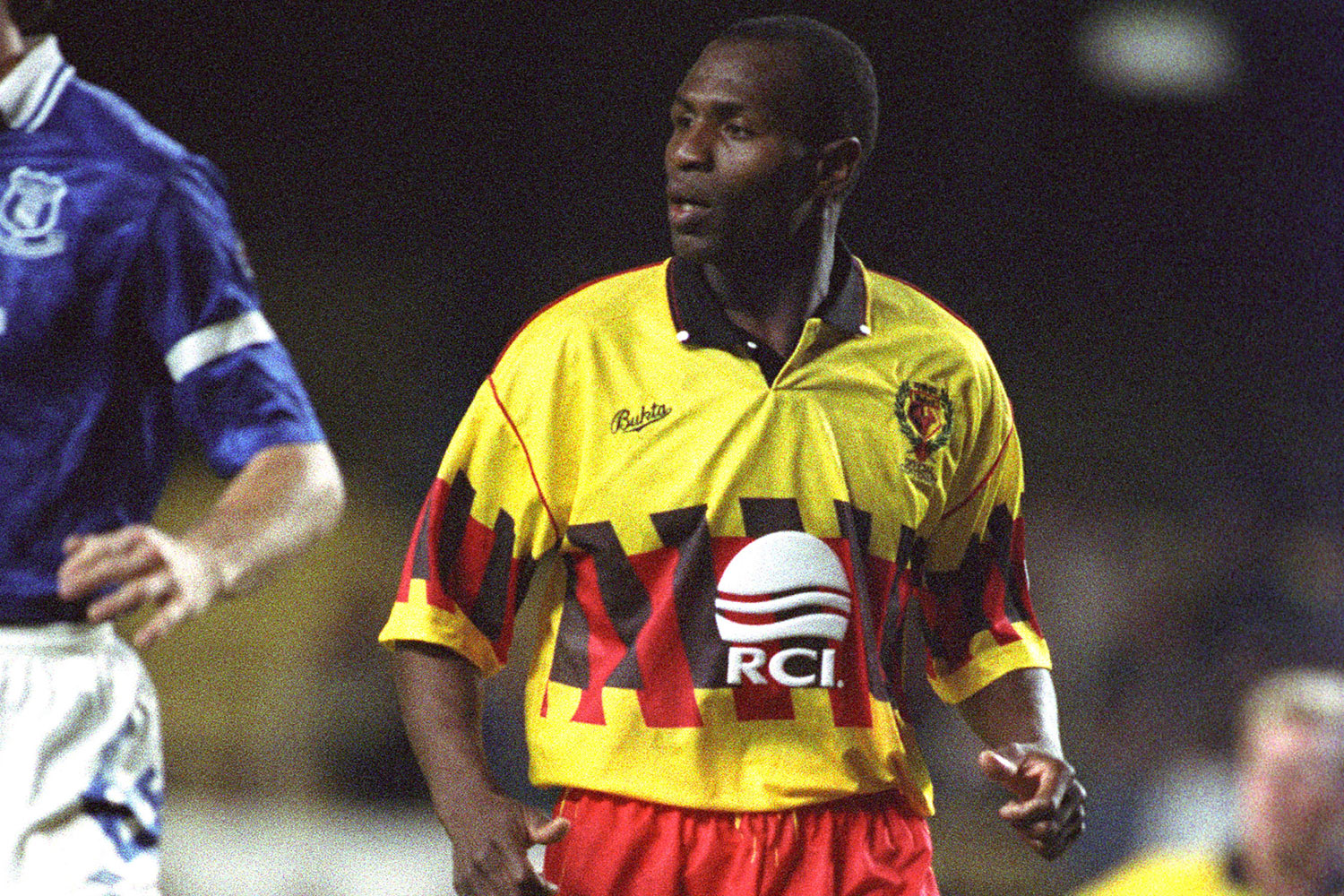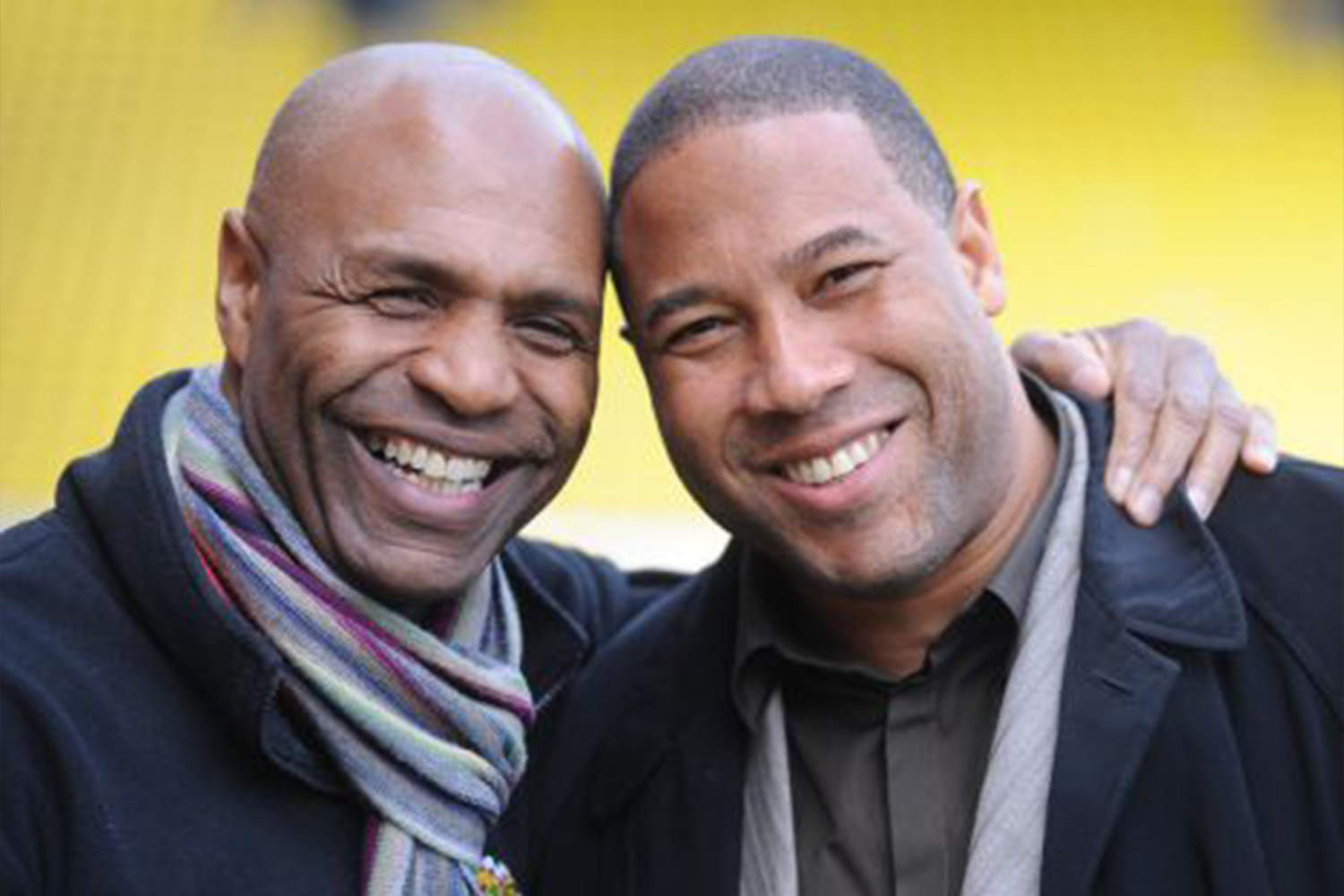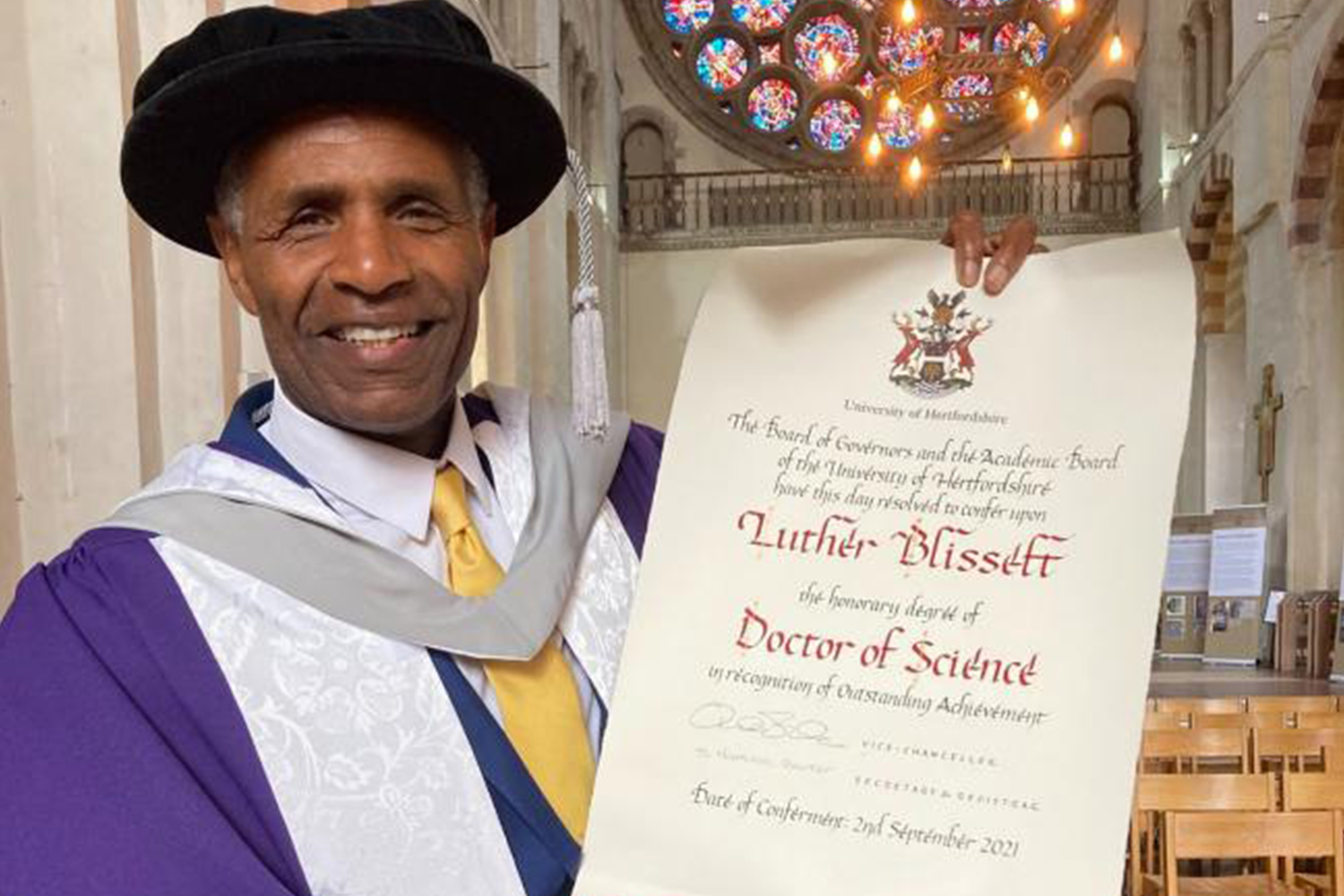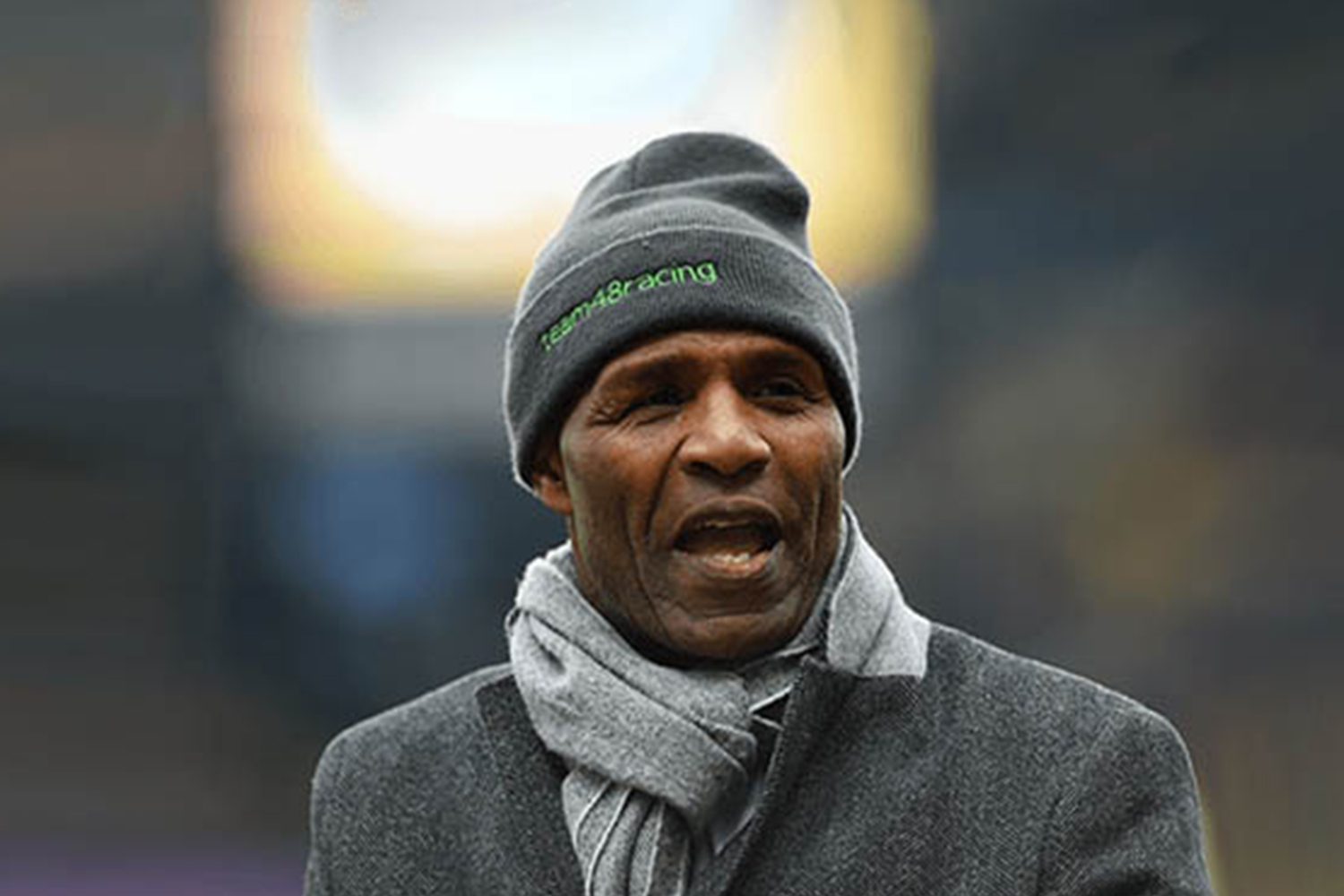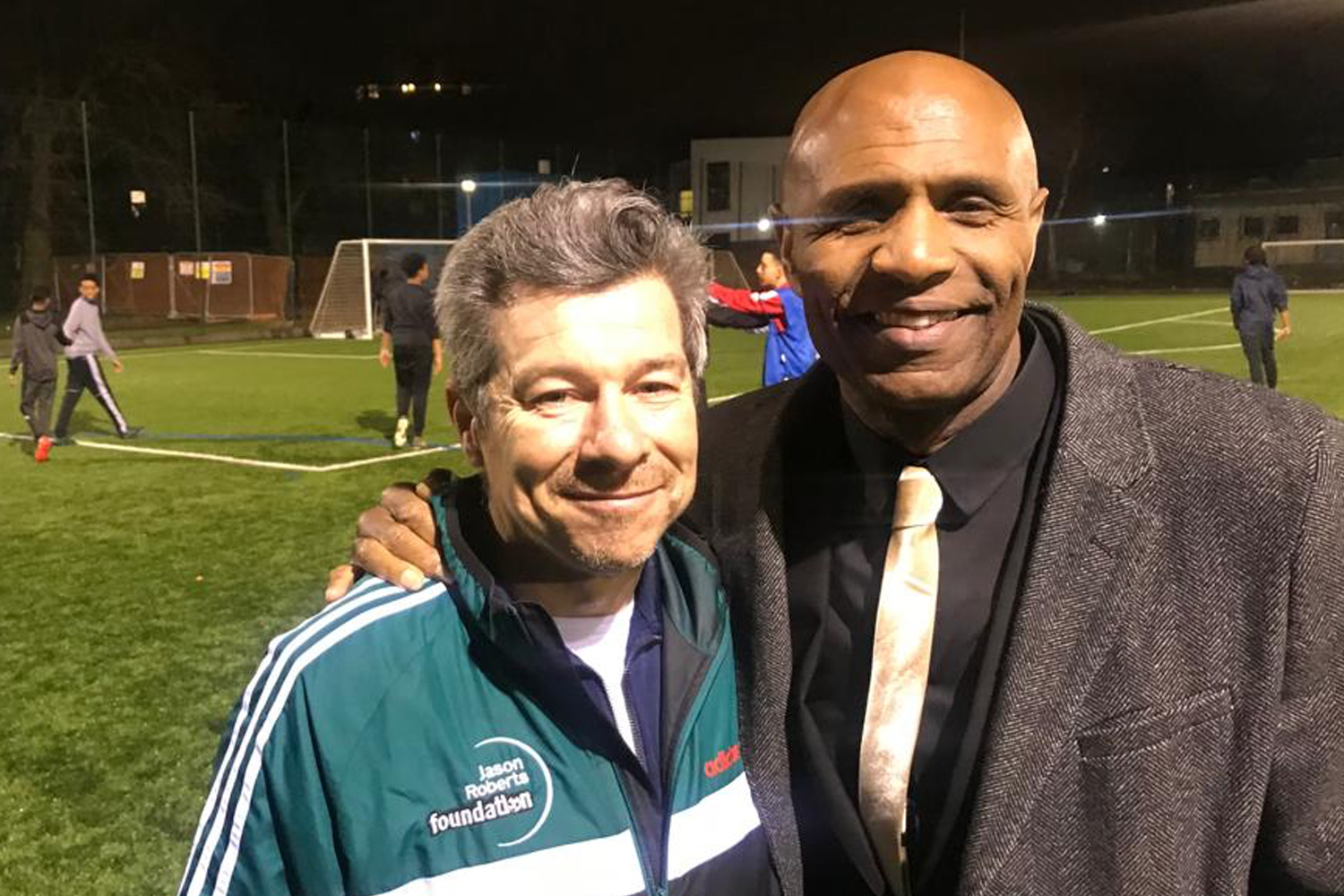Luther Blissett’s journey to football stardom began with an enthusiastic willingness to play left back, despite having never heard of the position, let alone played it.
EARLY LIFE
He was seven years old, attending primary school in Harlesden. When the school coach asked who wanted the position, no one volunteered. Spotting an opportunity to make the squad, Luther’s hand shot up. In the years that followed, Luther found his way from left back, to centre half, eventually settling in as a striker by age 14.
Luther Blissett was born in 1958 in Falmouth, the capital city of Jamaica’s Trelawny Parish. He moved to the United Kingdom at five years old, joining his mother and father who had made the move one year prior. Shocked by snow on their arrival, Luther, along with his brother and sister, settled with their parents in Harlesden, Brent.
Despite cricket’s popularity in Jamaica, and within his own family, Luther was determined to play football. He credits his mother’s hard work and determination for helping him to realise his potential, initially through school teams, and Sunday youth leagues in the borough.
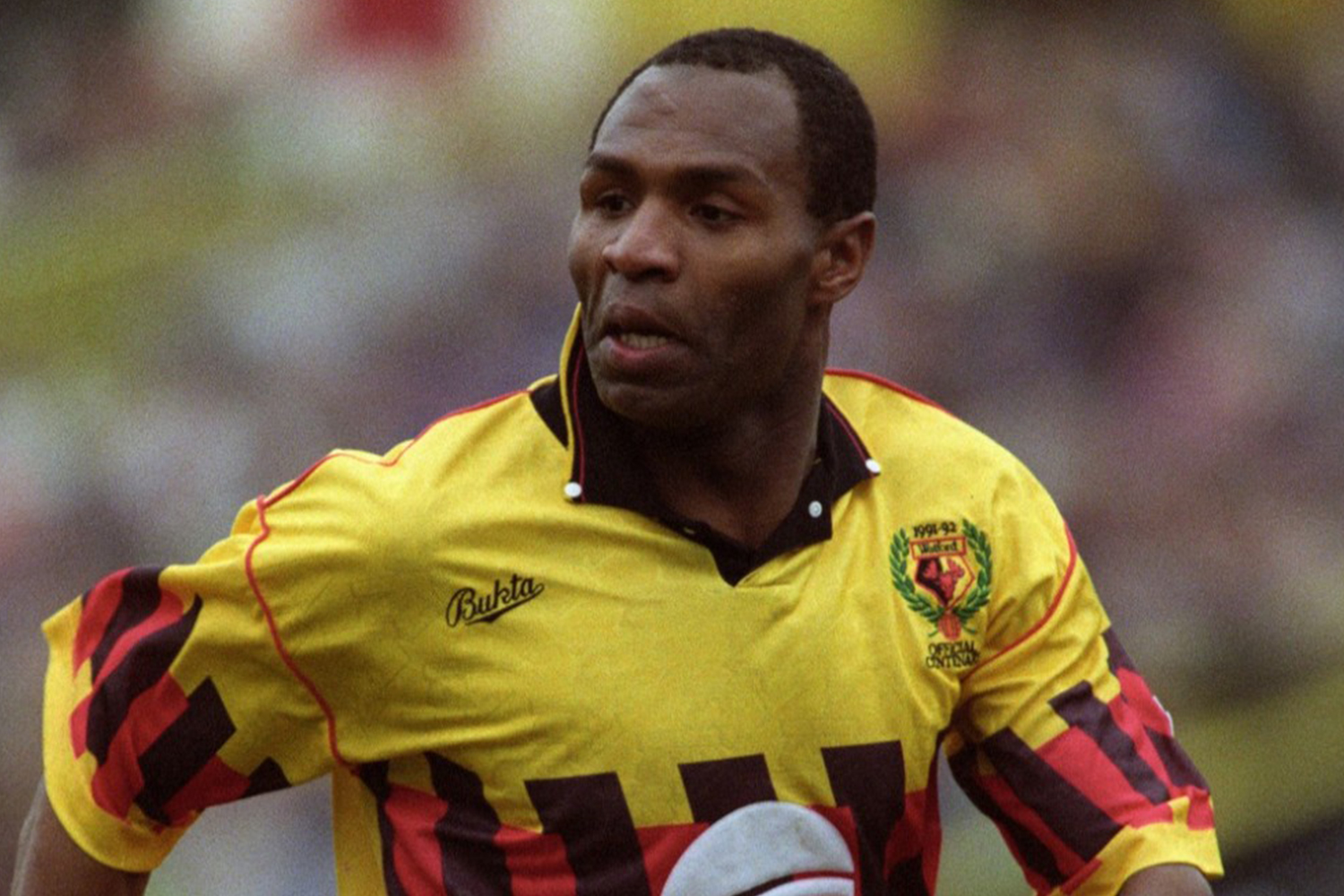
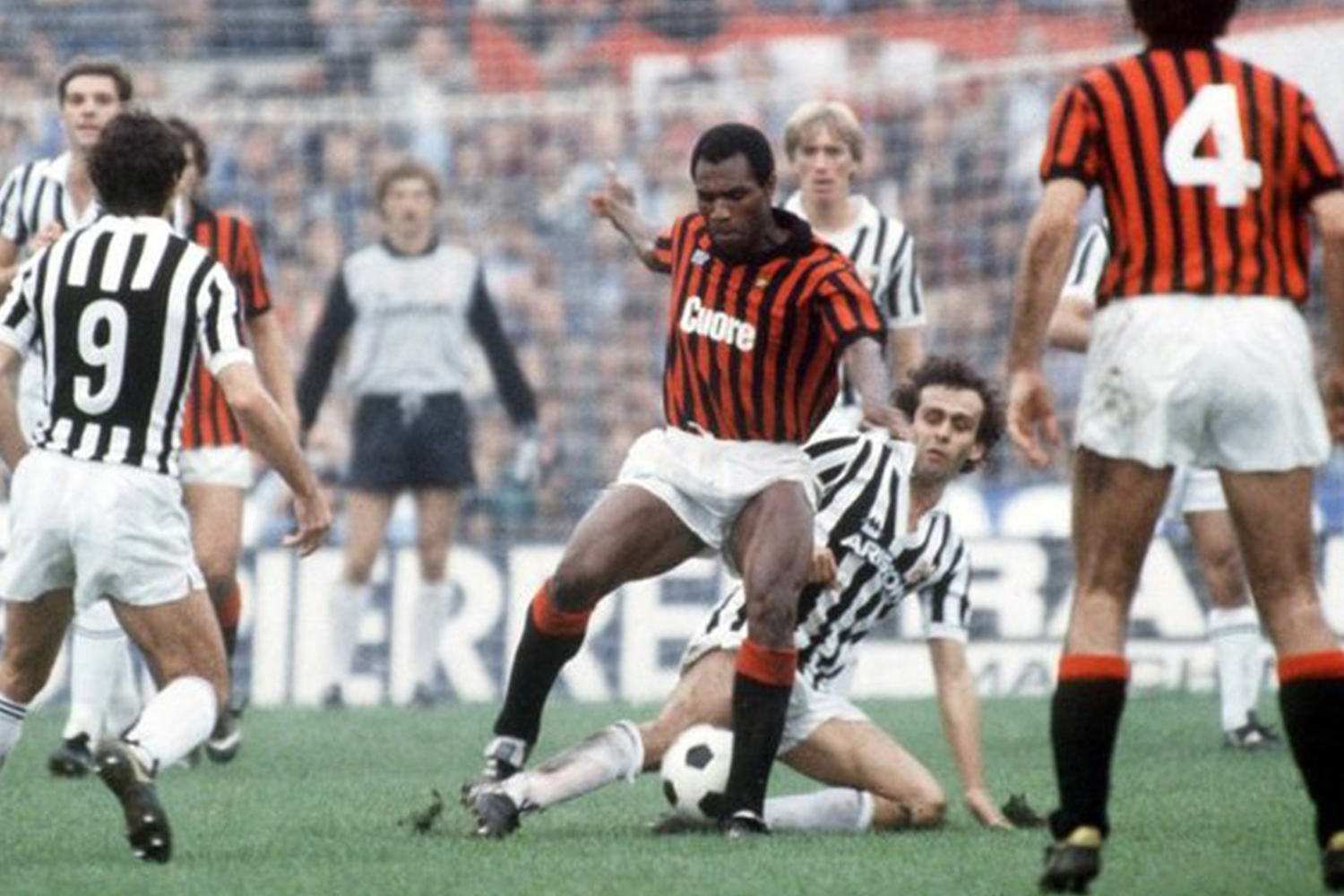

Career highlights
Several years later, Luther attended Watford FC’s open trials along with eight friends from Willesden High School. He was the only one to make it. He joined Watford as an apprentice in 1974, and quickly turned professional in the 1975-76 season. Under the leadership of Graham Taylor in the 1977-78 campaign, Luther broke into the first team, where he produced six goals in 33 matches, followed by 21 goals the following season. He was pivotal in back-to-back promotions, and in the Club’s eventual promotion to the First Division in 1982 — the comparatively small club in the northern margins of London was back on the map. Between 1978 and 1992, across three spells with Watford, he led the team in league goals six times. In the Hornet’s inaugural First Division season, he led the First Division and Europe with 33 goals. To this day, he is the Hornets’ all-time record holder and appearance-maker; rightfully, the prolific striker has a stand named after him at Vicarage Road.
Luther Blissett shattered football records and cultural barriers throughout his entire playing career. His year-long spell at AC Milan in 1983-84 made him the first black British footballer to play in Italy, while his international call-up made him one of the first black players to represent the country at the senior level. Scoring a hat-trick on his full international debut, he became the first black player to ever do so while playing for England.
Luther hung up his boots in 1995, though his impact on the game was far from over. He rejoined Watford as a coach alongside Graham Taylor, bringing his journey with the club and his former manager full circle. He is a respected advocate for increased representation in the most senior positions at football clubs, and is passionate about championing current players to own their agency and influence in order to shape change across the game. Luther has been credited for his tireless efforts to tackle discrimination in modern day football, for which he was awarded the ‘Freedom of Watford’ award in 2021 by Watford Mayor, Peter Taylor.
Inspiring to Achieve
For more content on Luther click on the ‘Heritage Activies’ tab in the main menu.
Did you know?
Luther and Paul Kitson
Luther Blissett went to the same primary school as Paul Kitson. After Paul returned to school to deliver a Q&A, he encouraged Luther and friends to attend an open try out.
European Golden Boot
Luther Blissett won the European Golden Boot in 1982.

Honorary Doctorate
The University of Hertfordshire awarded the legendary striker with an Honorary Doctorate.
Nathan Blissett
Luther is uncle to former Plymouth Argyle, and current AFC Telford United player, Nathan Blissett.
Team mates
Luther Blissett and Cyrille Regis MBE played in the same district team.
Neighbours
Luther Blissett and Dave Beasant grew up one street away from one another.
The Pavilion
Luther Blissett cut the ribbon for the Stonebridge Pavilion’s opening in 2007.
Watford
Watford has a block named after Luther Blissett in Watford as part of a regeneration project.

